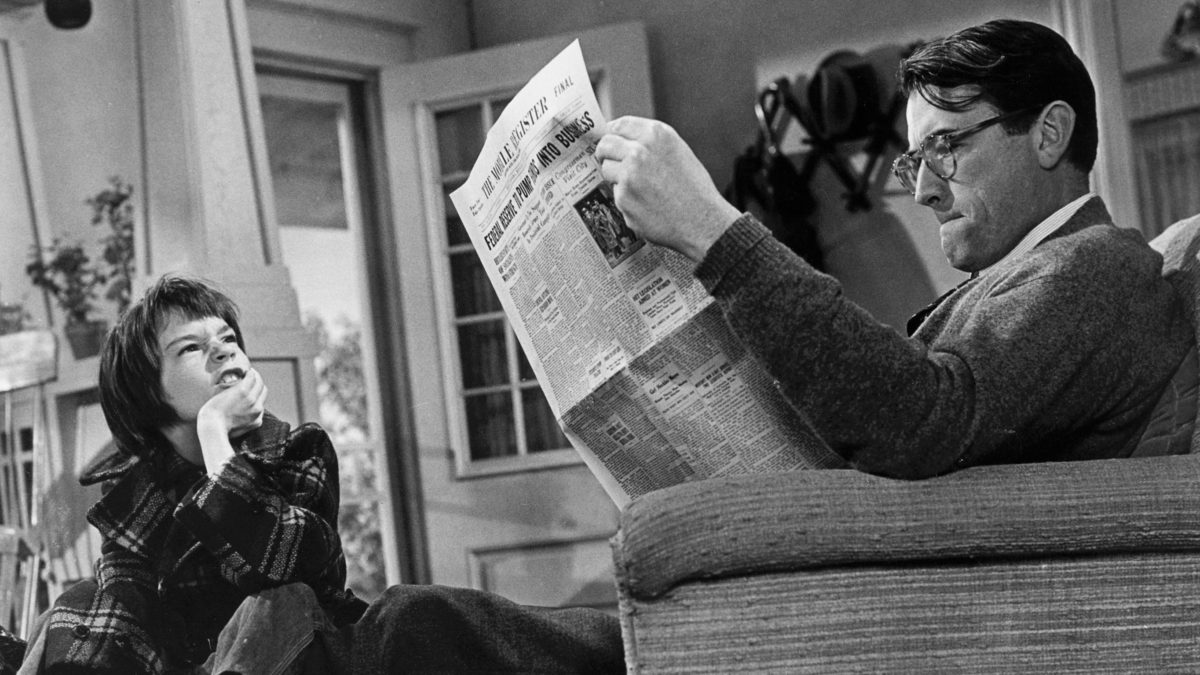The consensus among my peers in recent years is that To Kill a Mockingbird is Baby’s First Anti-Racism Story with a heavy dollop of white saviorism. But I still believe it’s a compelling and effective story, inspiring and viscerally angering in appropriate measures. I appreciate that the central premise really illuminates how racism is “built upon the destruction of the body,” to quote Ta-Nehisi Coates; nearly every detail and piece of evidence on the alleged crime is driven by exploitation, violence, or fetishization of Tom’s body.
Back to the film proper: in addition to having a riveting courtroom scene, this is also a depression-era slice of life and coming-of-age story. The black and white photography by Russell Harlan strikes me as so mournful, capturing the texture of grime and dirt and decay of the poor boonies.
Gregory Peck gives one of those sterling performances of such charisma and screen presence that it has understandably gone down as legendary. Atticus Finch is such a Dad Fantasy: a man known for good character and generosity, but who can also be a badass when needed.
The segments with just the kids drag a little bit in comparison to the Atticus stuff, but the movie never sinks below “engaging,” and often soars higher.
- Review Series: Top 100 (2009 List)
Is It Good?
Exceptionally Good (7/8)
Note: This review was published early in The Goods' history and is a candidate for an expanded review in the future. Please excuse brevity or inconsistencies in style.
Dan is the founder and head critic of The Goods. Follow Dan on Letterboxd. Join the Discord for updates and discussion.

